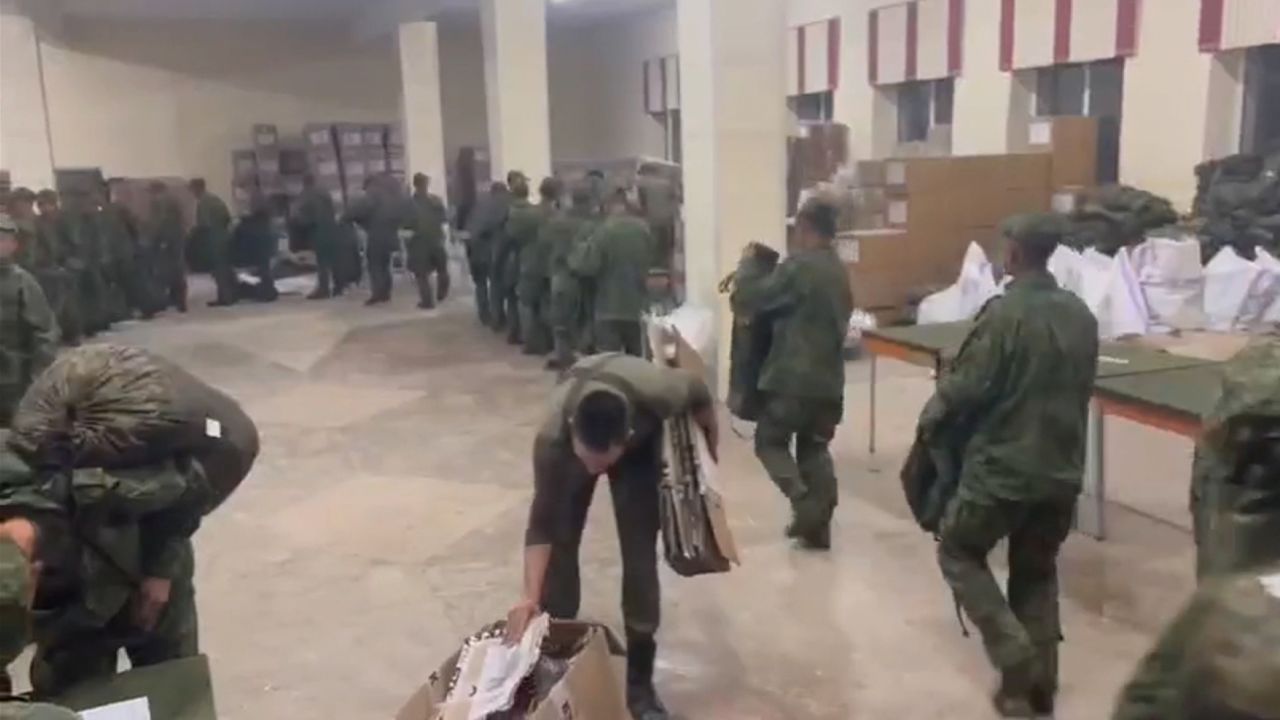North Korean soldiers may be being readied for a move to the front lines of Russia’s war against Ukraine after being taught basic Russian commands, South Korean lawmakers told reporters on Tuesday, citing the country’s intelligence officials.
About 10,000 North Korean soldiers are receiving military training in eastern Russia, the Pentagon estimated on Monday – up from a previous estimate of 3,000 by the White House.
South Korea’s National Intelligence Service (NIS) is now watching for the possibility of “some North Korean personnel, including high-ranking military officials, moving to the front lines,” said lawmakers Lee Seong-kweun and Park Sun-won, who were briefed by the NIS during a closed-door meeting of a parliamentary intelligence committee.
Russia is teaching North Korean soldiers about 100 basic military words like “fire” and “in position,” the lawmakers said.
However, they added, it’s clear that North Korean soldiers are struggling to communicate – and it’s not clear whether they’ll be able to bridge the language gap.
North Korea has also stepped up its security measures – both to protect its dictator Kim Jong Un and to prevent news of the North Korean deployments to Russia from spreading within the highly isolated, impoverished country.
To this end, North Korean officers involved in the Russian effort are banned from using phones, while families of soldiers are told that their loved ones are simply participating in a “military exercise,” the lawmakers said.

Despite these measures, word has spread within North Korea of deployments to Russia – sparking “unrest” in some parts of the country, the lawmakers said.
Some residents and soldiers have voiced fears of possibly being sent to Russia themselves, while others have questioned why they are being sacrificed for a different country, they added.
Last week, Ukraine intercepted Russian transmission channels and released audio, with Russian soldiers heard talking disdainfully about the incoming North Korean soldiers, calling them the “K Battalion” and referring to them as “the f**king Chinese.”
The intercepts also reveal plans to have one interpreter and three senior officers for every 30 North Korean men, which the Russian soldiers are heard in the audio condemning.
“The only thing I don’t understand is that there [should be] three senior officers for 30 people. Where do we get them? We’ll have to pull them out,” one Russian serviceman says.
This could mark the first time North Korea makes a significant intervention in an international conflict. North Korea has one of the world’s largest militaries with 1.2 million soldiers, but most of its troops lack combat experience.
The Kremlin had initially dismissed allegations of North Korean troop deployments, but at the BRICS summit in Russia last week, President Vladimir Putin did not deny that Pyongyang had sent soldiers to the country.
North Korea said on Friday that any troop deployment to Russia to aid the war in Ukraine would conform with international law, state media reported, without explicitly confirming such presence. North Korea had previously dismissed such reports.
North Korean Foreign Minister Choe Son Hui is now in Russia for her second trip there in six weeks, having departed Pyongyang on Monday. She likely traveled to discuss potentially dispatching more North Korean troops – and what Pyongyang would receive in return, the lawmakers told reporters.
The news also comes as South Korea’s foreign and defense ministers head to Washington to speak with their counterparts, Secretary of State Antony Blinken and Defense Secretary Lloyd Austin, for an annual ministerial meeting.





